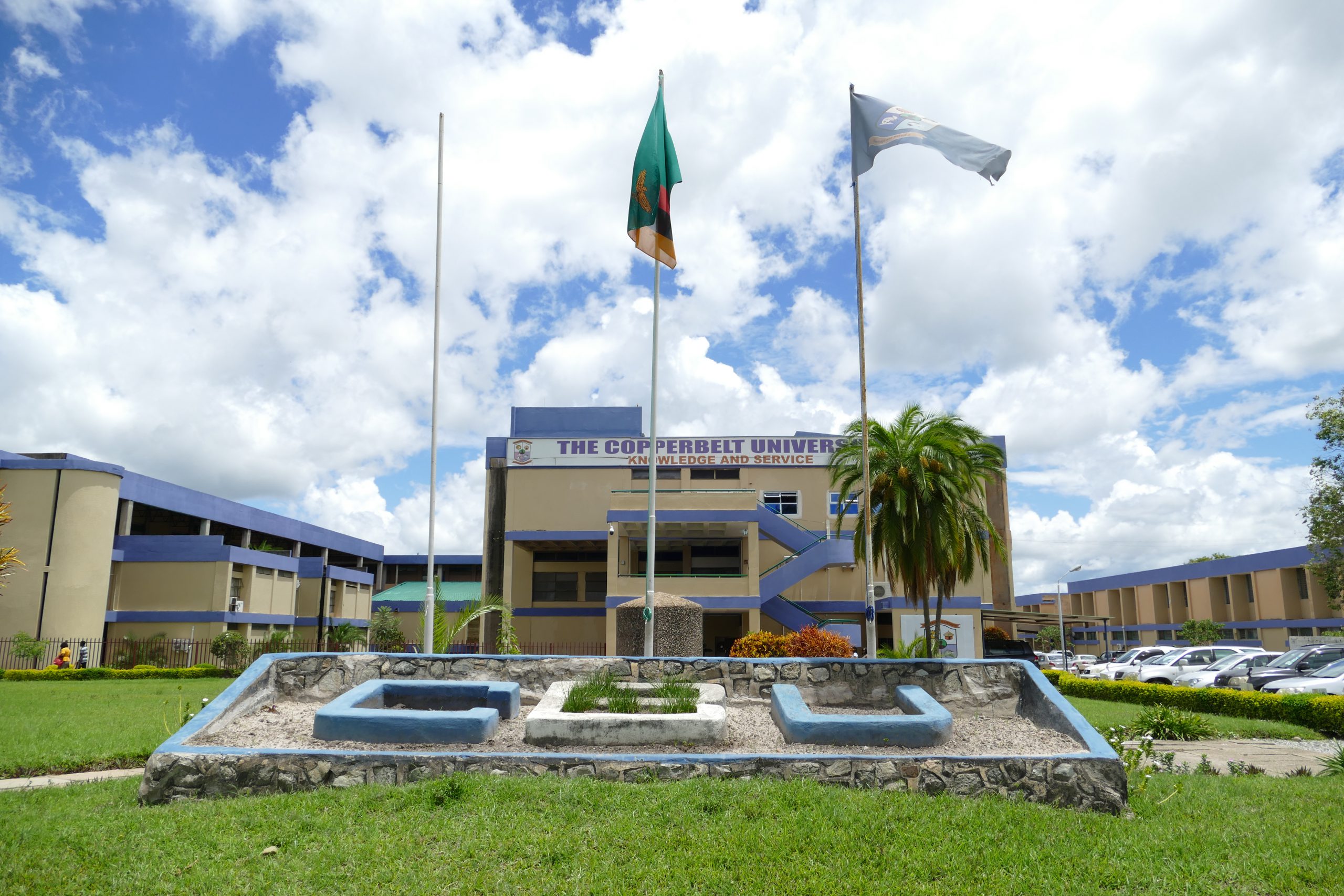

“The Copperbelt University is not only a reservoir of knowledge, but a source of new knowledge generation and transfer “
Prof. Bernard Mudenda Hang’ombe
BVM, MSc, PhD
BIOGRAPHY
Bernard Mudenda Hang’ombe is a Professor of Microbiology and is currently the Deputy Vice Chancellor – Research and Innovation at the Copperbelt University. His professional standing is anchored on:
(i) Research Leadership: He has conducted various research activities (basic and applied) as well as commissioned research that has resulted in more than 200 research articles and regulatory reports.
(ii) Community Service & Engagement: He has been involved in various community works and sat on various government and non-governmental committees. He has worked as a technical expert on local and international statutory bodies. He has served on special committees of the World Health Organization (WHO), World Organization for Animal Health (WOAH), Food Agriculture Organization (FAO), Africa Union (AU), Southern Africa Development Community (SADC), International Atomic Energy Agency (IAEA) and Japanese International Cooperation Agency (JICA). He is currently an external assessor for the prestigious Hideyo Noguchi Memorial Prize of Japan.
(iii) Administrative Experience: Held several academic leadership positions of Center Leader, Dean, Head of Department and Assistant Dean Postgraduate.
(iv) Grants and partnerships: Managed to bring resources for postgraduate training and laboratory support from various collaborating partners. He has supervised over 45 Masters and 15 Doctor of Philosophy students.
(v) Innovations: Some research activities have progressed into innovations to assist some sectors of Government such as the Development of the Fish vaccine and testing of Quick diagnostic Protocols for infectious diseases

RESEARCH FOCUS AND PRIORITIES
An outline of the university’s key research areas and strengths.
The University anchors its key research areas on Sustainable Development Goals focusing on research translation and innovation. The key research areas include Mining, and Environmental Sustainability, Health and Biomedical Sciences, Climate Resilience and Built environment, and Business and Management aspects.
The strengths of the University lie in its core values (accountability, creativity, excellence, innovativeness, integrity and transparency).
Information on major research initiatives, centers, or institutes
The University conducts a diverse of research initiatives in it’s various Schools and directorates. Of significance is research in:
Architecture, Construction Management, Quantity Surveying, Urban and Regional Planning and Real Estate Studies.
- Innovation and Technology for Sustainable Artisanal and Small-Scale Mining Practices in Zambia.
- Use and application of digital tools in the Zambian community’s context.
- Grow Green Africa: Building Climate Change Resilience through Smart Green Technologies
- Community-led Strategies for Climate Resilient Food Systems and Local Peace in Southern Rural Zambia.
- Capacity building on curriculum for tackling cross-cutting issues for green learning
- Elucidating the mechanisms of action of bioactive compounds in medicinal plants used in Zambia in the treatment of opportunistic infections in people living with human immunodeficiency virus.
- Prevalence in East Africa of Human Papillomavirus in the Head and Neck Area and Importance for the Development of Premalignant Lesions and Cancer
- Healthcare investments and life expectancy in Zambia
- Sustainable mining strategies.
A statement on the university’s commitment to fostering a culture of research and innovation.
The University is committed to the enhancing of the research and innovation agenda through the recapitalization of the university’s research and innovation infrastructure for sustainable national development and university visibility
Details on how the university supports researchers (e.g., funding opportunities, research facilities).
The University supports researchers on grant application writing, networking opportunities, and collaboration with other institutions and industry partners that fund research and those offering research facilities. The University is growing the research fund portfolio.
AFFILIATIONS
- Antimicrobial Resistance Coordinating Committee of the Government of Zambia.
- Global Virus Network as Committee Member.
- Veterinary Association of Zambia
- Veterinary Council of Zambia
- Researcher and Visiting Professor, Institute for Vaccine Research and Development, Hokkaido University, Japan